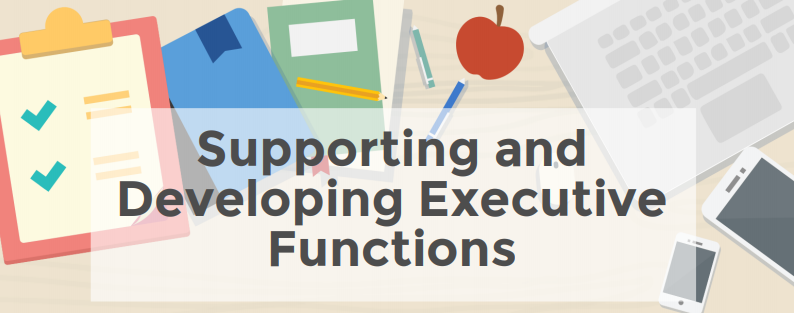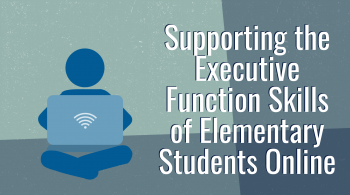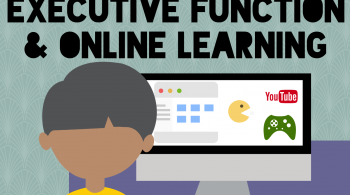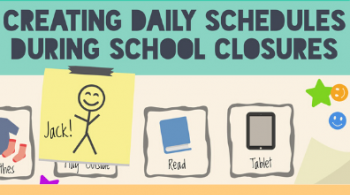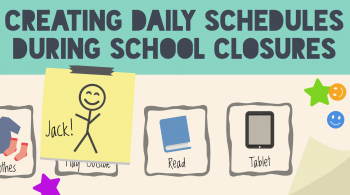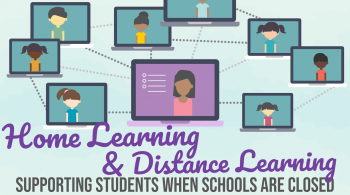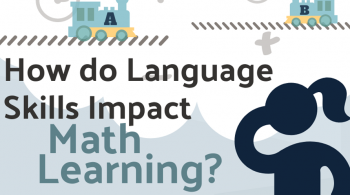October 13, 2015
Lisa Carey, education consultant at the Center for Innovation and Leadership in Special Education (CILSE), sat down with neuropsychologist Dr. Lisa Jacobson to discuss executive functioning.
Lisa: Dr. Jacobson, why don’t you tell us a little bit about yourself?
I am a neuropsychologist and head of the Executive Function Clinic in the Neuropsychology Department at Kennedy Krieger Institute where we see children for assessments with a variety of concerns, but all primarily presenting with difficulties in day-to-day life, such as managing their attention, regulating their behavior, getting their work done, finishing things they are responsible for, and remembering to turn things in. Those are commonalities among all of the children we see. We see the whole age gamut— we have kindergarteners all the way up to college-aged students.
Lisa: How would you describe executive function to someone who is new to neuroscience?
When I’m describing executive function to families, I often say that executive functions are the skills that allow you to apply your smarts. So it’s not how smart you are- but it’s what you can do in order to get the job done. It’s like having a clutch on your car, it doesn’t matter how much horsepower you have, if you don’t have a clutch, you’re not going to get very far. It’s really the ability to stick to a project, to plan what you need to do in order to get going, to figure out what the next step is in terms of your outline or your procedure, and to self-evaluate whether you are staying on track and then, how well you’ve done. It’s being able to stay on track and then ask yourself, did I follow all of the directions? Did I get the job done? Did I answer all of the parts of the project?
Lisa: What is executive dysfunction?
Executive dysfunction is essentially a fancy word for difficulty in getting the job done. And that can also mean difficulty regulating behavior. Someone who has executive dysfunction is very apt to blurt things out, or be out of their seat, or forgetful, or have trouble managing the big picture –meaning getting all the details done in order to get to that big picture product. Or it can also mean that somebody is emotionally reactive and has difficulty managing their behavior in response to feelings.
I think we think about executive functions as work-related aspects of cognitive control and we don’t think as much about the affect regulation component. So, somebody who is very easily upset and has difficulty getting over being upset, someone who has trouble with novelty— some of those components would reflect executive dysfunction as well.
Lisa: How do you assess executive function in your clinic?
Clinical assessments use multiple components to make a diagnosis. One component is observation— how does the child approach the problems that we present, how well do they handle frustration, how well do they stay in their seat throughout the day, how well do they handle getting tired over the course of the day (just as you would get tired over the course of a school day or work day). Another component is parent and teacher report. Parents fill out rating scales letting us know what they see, for example in terms of the child’s ability to get their homework done, get started, set the table, clean their room, or get dressed in the morning without getting stuck on a day dream or on the iPad.
We also get teacher ratings that we solicit online for families that come in for assessment. We have teachers report on student work habits. We’ll ask questions about how the child regulates behavior, how they get along with other children, how well they get their work turned in- those kinds of things can give us a view from the school perspective. From teachers, we find out about children interrupting social interactions in a way that’s intrusive or impulsive or dysregulated, or if a student is easily upset and doesn’t have a lot of friends because they are that reactive child who doesn’t regulate well overall. So, that teacher report is a very important component to describe everyday behavior as well.
And finally, we look at performance-based testing and how someone actually performs on measures of executive function. That can be everything from how well you sustain your attention for something that is relatively tedious and boring (on purpose), or how you do with something that involves switching between response sets pretty quickly, or how you do with a task that actually requires you to solve problems on the spot. So we look at multiple aspects of test performance, as well as observations of how the child approached those tasks and managed the challenges of the testing day, and then parent and teacher report— it’s a multi-dimensional process.
Lisa: It’s good to know that there was a reason for me to fill out all of those teacher report forms over the years!
We appreciate those very much!
Lisa: You kind of touched on this, but how does executive function impact school performance?
I think that’s what tends to bring families to a clinic like ours. A lot of times, parents and teachers are very frustrated because children will have quite adequate ability to answer questions or perform math problems or generate ideas about a topic, but when it comes to getting the job done independently they’re less successful. They might be missing the sign on the arithmetic problem, and so they get them wrong. Or, they forget the procedure for division and so they get it wrong. Or they aren’t able to get their ideas onto paper for a writing assignment; they can’t come up with good ideas and hold them in mind long enough. They start with idea No. 1, get it all written out, and then they forget ideas two and three— their paragraph doesn’t make sense and they don’t have the supporting details of their paragraph in the right order. So, writing is particularly challenging, but there are certainly other aspects when you think about being able to hold directions in mind.
For example, a teacher might give instructions, you know, “Open your history book, turn to page 57, and I want you to do the odd numbered questions on this particular page, and when you’re finished don’t forget to copy your homework off of the board.” All of that is given in 30 seconds and the child is left thinking, “What book was I supposed to pull out?” and they have missed the rest of the instructions. So working memory, I think, is particularly critical in classrooms where there’s a lot of verbal demand. It is important for paying attention and being able to hold all of the tasks in mind that are being expected. So, I think we see executive dysfunction impacting children day-to-day in terms of task completion and being able to follow directions.
You also see executive function in a child’s ability to shift through the transitions throughout their day. Even at the 2nd grade or 3rd grade level, children are shifting between specials [i.e., art, music, PE] and regularly scheduled kinds of things, and then sometimes, they have one teacher for a certain subject and another teacher for other subjects and they have something else/another class instructor— and so they are shifting through their day and the transitions can derail some children. So there are lots of ways you can see executive dysfunction, regardless of the child’s school level; you don’t have to be writing an essay! You can see that some of the ways in which the school day is shaped may not be playing to that child’s strengths.
Lisa: So what can schools do to support the development of executive function skills?
How long do you have?
Lisa: Give me your top three.
- There is data in the research literature that suggest there are ways that the curriculum can be modified to support children in developing these [executive function] skills.
- There is research on the effectiveness of the Tools of the Mind curriculum, for example, which is designed as an application of Vygotsky’s principles about learning to support development of EF skills; and
- There is other data regarding how we apply what we know about neuroscience to what we know about learning and classroom behavior and curricula.
The idea is that we can set up learning activities so that children are taught how to use self-regulatory skills. They are taught how to plan, they are taught how to self-evaluate, they are taught how to work in a group in a way that is very interactive, but also respectful. And they have the opportunity to come back and reflect on what they have done as a group. When children have difficulties, there are specific scaffolds offered to them to help them develop these [self-regulatory] skills and get past that particular hurdle or challenge. So, there are definitely things that schools can do differently, including curricular changes and/or teaching problem solving skills, but also really the ways you build in learning opportunities, to the ways schools schedule the day.
When you think about even a high school schedule— that puts a good bit of stress on the individual student. You know, if you’re doing block scheduling versus eight different periods in a day, there’s a lot of difference in the number of transitions; these include having to remember what day it is (like an A day or a B day), what you need from your locker, and whether you need your gym clothes, etc. So thinking about the way the routine is set up and the way that children are prompted to remember, "How do you know what day it is? How can you remember?"
And then, there is working memory. When I spoke earlier of the teacher giving directions, can we simply reduce the working memory load that we provide to children? Can we give less instruction (fewer steps) at one time? Give one or two instructions at a time, wait until the children are done, and then come back and give the next step. Go ahead and give the specifics of the assignment after people are ready. Or, can we give it in writing, can we put it up on the smart board, can some of these things be presented visually, so if someone is not keeping up they can check back and look? So really, there are ways to accommodate reducing working memory load in changing the way the classroom flows.
There are obviously lots more ways that schools can support children, but I think that a lot of difficulty could be addressed by some relatively straight forward accommodations and modifications that would not be particularly difficult to implement and would benefit everybody, because lots of children go through moments when they are not paying attention as well as they should or are having trouble remembering what they were supposed to do. So being conscious and thinking about how we can make the way that we structure the day and our curriculum more developmentally appropriate would be a big step in the right direction.
Lisa: Is there a concept about over-taxing executive functioning? Can you overwhelm someone’s executive functioning skills?
You can. Researchers at Kennedy Krieger actually conducted a study several years ago, looking at increasing the level of working memory required for a task. Children were given a computer-based task where they were seeing pictures presented to them and then they were supposed to just hit a key in response to a visual stimulus. Children with ADHD performed more poorly than typical children, but when you made the task require more working memory, you could make typical children perform just as badly as children with ADHD. So you can, in fact, create a working memory problem or executive dysfunction, by the amount of demand you present to children.
I think, absolutely, there is a concept of over-taxing executive function or creating a deficit that isn’t necessarily present in other contexts. And we know that the whole concept of disability is based upon a combination of what your abilities are as compared to what the expectations are; if the expectation is adjusted to meet your skills, and you can function well, then you may not actually have a disability in terms of functional impairment in that setting. You may be accommodated to the point that you can be just as successful as you would hope. I think that over-taxing is potentially an environmental construct. Going back to the example of giving directions, there are lots of ways you can give directions that will overwhelm a student and they won’t keep up, even an adult won’t keep up. So yes, you can absolutely create executive dysfunction if you try!
Lisa: That’s really good for teachers to know— to consider how you are the one that gets to set the context and so that’s something you need to put a lot of thought and energy into.
Absolutely. And I think you can use context to help. As good teachers know, the way you set up your routines, the way you set up your instructional practices, makes a huge difference for compliance, attention, and children’s ability to do the work. Even if you have children for whom the work is legitimately difficult, there are definitely ways to set that up so that they are much more motivated to succeed.

